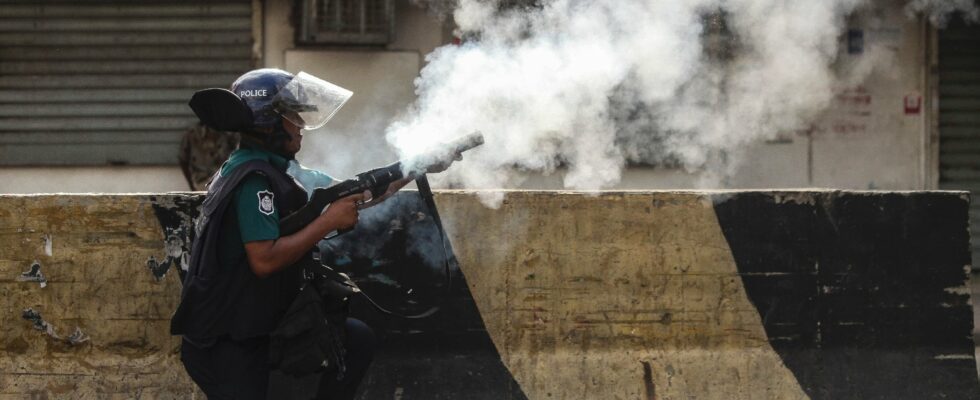Will the decision by the highest court be enough to calm the anger of Bangladeshis? As the country of 170 million people experiences an escalation of violence, protesters on Sunday, July 21, showed their intention to continue the protest movement, despite a highly anticipated decision by the Supreme Court.
The top court was due to rule in August on the legality of a recently reintroduced scheme that reserves more than half of government jobs for selected candidates (children of some war veterans), but in light of the escalation of violence between students and police, it moved up its verdict. The Supreme Court thus ruled as “illegal” a lower court’s June order reintroducing the public sector hiring quota system, Bangladesh’s attorney general, AM Amin Uddin, told AFP.
In its ruling, the Supreme Court drastically reduced the number of reserved jobs from 56% to 7% of all posts. It reserves 5% of all government jobs for the children of “freedom fighters” from Bangladesh’s 1971 liberation war against Pakistan. This compares to 30% of the previous government jobs. In addition, 1% of the jobs are allocated to tribal communities and 1% to persons with disabilities or those who identify as a third gender under Bangladeshi law. The remaining 93% of jobs will now be allocated on merit, the court ruled.
Protesters demand end to Sheikh Hasina’s term
Behind the reintroduction of civil service recruitment quotas last June, young Bangladeshis saw a way to reserve more than half of the highly sought-after public sector jobs for specific groups close to power. This is an even more serious concern in a country where 12% of 15-24 year-olds are unemployed.
The category of “freedom fighters” in particular has drawn criticism from young graduates, with critics saying it is being used to award government jobs to loyalists of the ruling Awami League. Prime Minister Sheikh Hasina, whose government has been accused by her opponents of bending the judiciary, had already suggested earlier this week that the court would rule in favour of the students’ demands. Meanwhile, Shah Monjurul Hoque, a lawyer involved in the case, told AFP that the court had also asked the protesting students “to return to class” after its verdict.
And after? “The situation in the country remains very tense and unstable,” assures a journalist fromAl Jazeeraa Qatar-based 24-hour news channel. The crackdown on protests – police fired live ammunition on Saturday, July 20 in the capital Dhaka and at least 130 people are believed to have died this week, according to an AFP tally – has prompted tens of thousands of young Bangladeshis to demand an end to the mandate of Sheikh Hasina, 76, who has been in power since 2009.
“We will not stop our protests until the government makes a decision that takes our demands into account,” a spokesperson for the association “Students Against Discrimination” told AFP, speaking on condition of anonymity. The student movement is also demanding the release of those imprisoned.
Sheikh Hasina’s diplomatic tour cancelled
Sheikh Hasina’s government has been accused by human rights activists of abusing state institutions to consolidate its influence and stamp out dissent, particularly through the extrajudicial killing of opponents. The Bangladeshi prime minister was due to leave the country on Sunday, July 21, for a diplomatic tour of Spain and Brazil, but she has abandoned her plan due to the ongoing violence. For their part, the police have arrested several members of the Bangladesh Nationalist Party (BNP), the main opposition party, and Students Against Discrimination, the main group organizing the protests. The rights group Amnesty International she denounced the cut in communications.
And what about security? Bangladeshi Interior Minister Asaduzzaman Khan told AFP that the curfew imposed on Saturday, July 20, would remain in place “until the situation improves.” In addition to protesters setting fire to government buildings and police stations, arson attacks have rendered Dhaka’s metropolitan rail network inoperable, he said. The U.S. State Department on Saturday advised Americans against traveling to Bangladesh and announced that it would begin repatriating some diplomats and their families.
